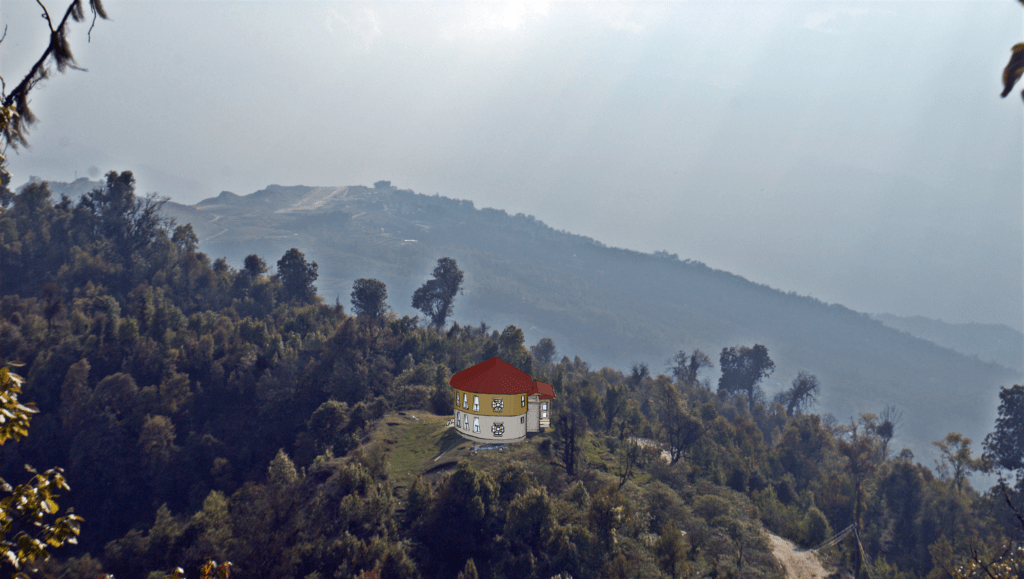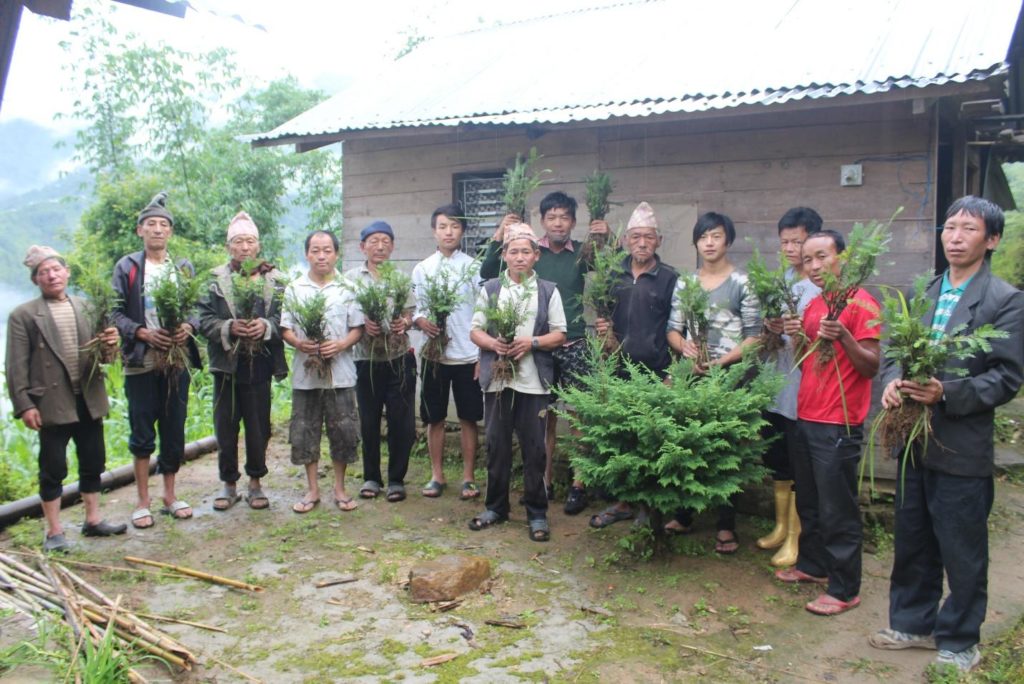
RPN RECEIVES SUPPORT TO CONSTRUCT A CENTER COMMITTED TO ALLEVIATING POVERTY AND ENSURING A SUSTAINABLE FUTURE FOR PEOPLE AND RED PANDAS.
For nearly 12 years, RPN has been working with the communities of Panchthar-Ilam-Taplejung (PIT) corridor in Eastern Nepal to conserve red pandas and their habitat. During this time, we have identified the most prevalent threats to red pandas in the region, which include habitat loss and degradation, as well as poaching and illegal trade. The main driver of these threats: unsustainable living practices of the local people who are living in poverty.
Economic opportunities in the high-mountains are scarce and families resort to earning income in ways that degrade forest quality and deplete forest resources. They have little access to modern technologies that would make their lives easier while reducing demand for timber, fuelwood and other forest resources.
This dire situation has inspired the Center for Conservation and Sustainable Living, or CCSL.
RPN is working with communities of Eastern Nepal in creating solutions to poverty and deforestation. The CCSL will be the centerpiece of these efforts. Thanks to the support of Nordens Ark and Svenska Postkodlotteriet, construction of the center will begin this year.
Nordens Ark is a zoo and nonprofit located in Hunnebostrand, Sweden dedicated to the conservation of endangered species. Svenska Postkodlotteriet has provided annual support to Nordens Ark since 2010. In March of this year, Nordens Ark also received 4.8 million SEK that will go to red panda conservation. Through our partnership with Nordens Ark, RPN will receive $377,000 over three years to construct the CCSL and prepare the facility for long term impact.
The CCSL will be strategically located in route to Pathibhara temple, a renown pilgrimage site in Taplejung district. This region has a population of over 127,000 and borders India in the East and China in the North. Nearly 80,000 pilgrims from Nepal and India visit this temple each year. This location also connects many rural settlements with the district headquarter: Phungling.
The community will be involved in every phase of the project. During construction, locals will learn sustainable building and construction techniques. The center will be earthquake resistant and the building will feature rainwater harvesting, improved cooking stoves, solar technologies, ecological-sanitation toilets and cultivation of organic vegetables, Non-timber Forest Products (NTFPs) and Medicinal and Aromatic Plants (MAPs).
 Illustration of CCSL on project site in Taplejung district.
Illustration of CCSL on project site in Taplejung district.
The CCSL will be a permanent platform for direct engagement and dialogue with the people of the PIT corridor. It will be a hub for education and economic empowerment that helps to bolster youth outreach, ecotourism and sustainable living practices. Schools in the region will utilize the center for environmental education programs and it will provide lodging and accommodations for our red panda ecotrippers and other ecotourists and travellers.
“It will improve local living standards through diversifying livelihood opportunities.” Remarks Ang Phuri Sherpa, RPN Country Director in Nepal. “People will have access to many workshops and capacity-building trainings that will help them earn more income and meet their daily needs in a sustainable way.”
Training topics will include sustainable energy use, organic farming, NTFP and MAP cultivation, handicraft production, sustainable herding, nature guide and ecotrek leadership, homestay management and bio-briquette production. The CCSL will become a major training location for RPN Forest Guardians in wildlife survey and monitoring, and anti-poaching investigation. This will also be a place where Community Forest User Group members and Department of Forest officials to learn sustainable forest management techniques.
 Participants of organic farming workshop.
Participants of organic farming workshop.
Ang Phuri continues, “These living practices that threaten the future of red panda are intergenerational and have been the way of life for centuries. They cannot be changed without outside interventions and long-term commitment to offering a better life for people and wildlife. This is the mission of the CCSL.”
A better life is right. The CCSL will directly result in an increase in annual income of at least 2,000 families in the PIT corridor. Hundreds of others will gain skills that are locally in-demand, sustainable, and help ensure a future with red pandas. As with all of RPN’s programs, the goal is for the CCSL to eventually be self-sustaining and locally operated.
This summer, Nordens Ark celebrated the birth of two red pandas cubs. See how the lil' ones are doing on their video livestream!
Stay tuned for more updates on CCSL construction and development!
Red Panda Network
